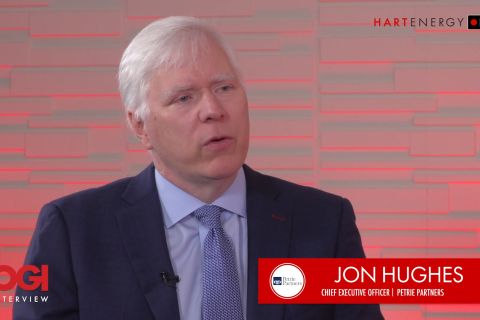Houston-based Crimson Exploration Inc. (Nasdaq: CXPO) has entered a second lien credit agreement providing for a five-year second lien term loan in the principal amount of $175 million.
Proceeds from the new term loan were used to retire all $150 million principal amount of its existing second lien term loan, to pay off a $2-million subordinated promissory note, to pay related fees and expenses and to use the remainder to substantially reduce debt.
The loan is secured on a second-priority basis by liens on all collateral granted to secure Crimson's revolving bank credit facility, which includes liens on substantially all of the company's assets, including the capital stock of Crimson's subsidiaries. The agreement also includes financial and other covenants related to financial performance, permitted indebtedness, minimum hedging requirements to limit commodity price risk and asset dispositions.
In conjunction, Crimson has added new commodity price hedges for 2011, specifically a commodity swap agreement for 3,100 barrels of crude oil per month at a fixed price of $85.65 per barrel, and a commodity swap agreement for 232,500 MMbtu of gas per month at a fixed price of $4.39 per MMbtu.
Under terms of the new loan, Crimson is required to hedge its commodity price risk for a minimum of 80% of currently forecasted PDP gas production; 75% of forecasted liquids production for 2011; and 65% of currently forecasted gas and liquids production for 2012.
Additionally, Crimson's current borrowing base of $95 million under its revolver was reduced by $6.25 million.
Affiliates of Oaktree Capital Management LP, a principal beneficial stockholder of Crimson and a holder of a portion of the second lien term loan, has participated in the new loan.
Crimson owns and operates conventional properties in Texas, Louisiana, Colorado and Mississippi. It holds approximately 12,000 net acres in the highly prospective Haynesville shale, Mid-Bossier, and James lime plays in San Augustine and Sabine counties in East Texas, approximately 9,300 net acres in the prospective Eagle Ford play in South Texas and approximately 11,000 net acres in the Denver Julesburg Basin in Colorado.
Recommended Reading
E&P Earnings Season Proves Up Stronger Efficiencies, Profits
2024-04-04 - The 2024 outlook for E&Ps largely surprises to the upside with conservative budgets and steady volumes.
The OGInterview: Petrie Partners a Big Deal Among Investment Banks
2024-02-01 - In this OGInterview, Hart Energy's Chris Mathews sat down with Petrie Partners—perhaps not the biggest or flashiest investment bank around, but after over two decades, the firm has been around the block more than most.
Petrie Partners: A Small Wonder
2024-02-01 - Petrie Partners may not be the biggest or flashiest investment bank on the block, but after over two decades, its executives have been around the block more than most.
BP’s Kate Thomson Promoted to CFO, Joins Board
2024-02-05 - Before becoming BP’s interim CFO in September 2023, Kate Thomson served as senior vice president of finance for production and operations.
Magnolia Oil & Gas Hikes Quarterly Cash Dividend by 13%
2024-02-05 - Magnolia’s dividend will rise 13% to $0.13 per share, the company said.





